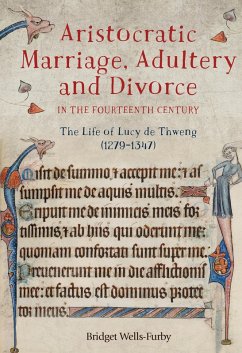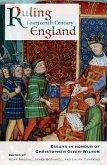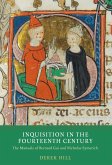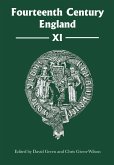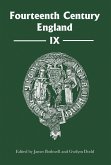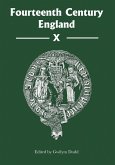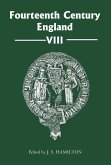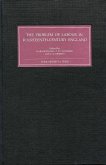The life of "that notorious woman", Lucy de Thweng, is used as a prism through which to consider the agency of aristocratic women in the Middle Ages.
The Yorkshire heiress, Lucy de Thweng, was married as a child to her first husband but later divorced him, entered into an adulterous relationship with another man, was forced into marriage to a second husband, and then, after a period of widowhood, married for the third time to a congenial partner of her own choice. This sounds a remarkable and unusual story - but was it?
This book uses the episodes of Lucy's life to explore how far she was exceptional in her time and rank and highlights aspects of personality and personal relationships which are not often recognized. It undertakes extensive investigations into divorce in contemporary aristocratic families and extra-marital sexual relationships by women, as well as discussing the marriage of heiresses and the pressures to remarry which widows endured. These show that the theoretical religious and secular restraints on marriage and sex were often ignored, by both men and women, and how women, particularly if they were heiresses, were able to make their own decisions in these matters. As the legitimate procreation of children within the licensed environment of marriage was the forum for the succession to landed estates, the book also considers how this behaviour affected those estates.
BRIDGET WELLS-FURBY is an independent scholar whose interests lie chiefly in late medieval landed estates and their context.
The Yorkshire heiress, Lucy de Thweng, was married as a child to her first husband but later divorced him, entered into an adulterous relationship with another man, was forced into marriage to a second husband, and then, after a period of widowhood, married for the third time to a congenial partner of her own choice. This sounds a remarkable and unusual story - but was it?
This book uses the episodes of Lucy's life to explore how far she was exceptional in her time and rank and highlights aspects of personality and personal relationships which are not often recognized. It undertakes extensive investigations into divorce in contemporary aristocratic families and extra-marital sexual relationships by women, as well as discussing the marriage of heiresses and the pressures to remarry which widows endured. These show that the theoretical religious and secular restraints on marriage and sex were often ignored, by both men and women, and how women, particularly if they were heiresses, were able to make their own decisions in these matters. As the legitimate procreation of children within the licensed environment of marriage was the forum for the succession to landed estates, the book also considers how this behaviour affected those estates.
BRIDGET WELLS-FURBY is an independent scholar whose interests lie chiefly in late medieval landed estates and their context.
Dieser Download kann aus rechtlichen Gründen nur mit Rechnungsadresse in A, D ausgeliefert werden.

